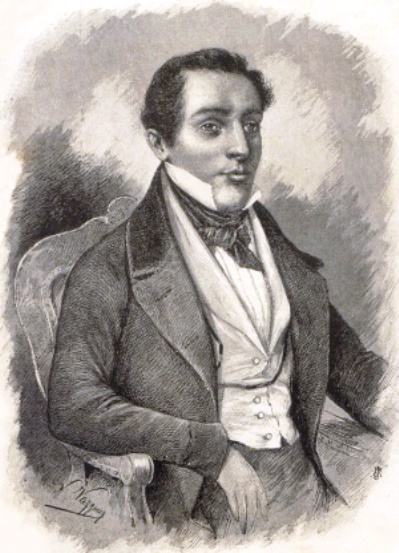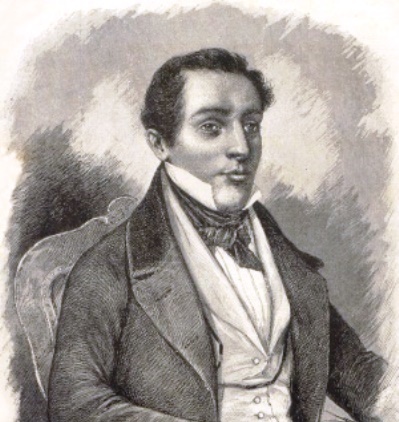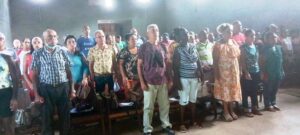The Top of Romanticism in Matanzas: José María Heredia.

CREATOR: gd-jpeg v1.0 (using IJG JPEG v80), quality = 95
The Athens of Cuba has the privilege of having welcomed one of the greatest personalities of Cuban poetry.

«Only he has put in his verses the sublimity, pomp and fire of his nature. He is volcanic as his entrails, and serene as his heights».
José Martí
A city of poets and singular culture, Matanzas is also a land where tradition is rooted since the very birth of this amphitheater city.
Thus, when in the 19th century it was compared to the Greece of yesteryear, it was intended to synthesize, in addition to the geographical richness, the climatic characteristics, the identity of the people of Matanzas and the history of the territory, the excellence of its culture.
This city treasures names, among others, of great poets who left here, more than their indispensable lyrics, the memory of a country, its loves, despairs, torments and nostalgia. The Athens of Cuba has the privilege of having welcomed one of the greatest personalities of Cuban poetry.
HEREDIA IN MATANZAS
The Cuban poet José María Heredia, precursor of Romanticism in Cuban literature, lived several stages in Matanzas, a place where he found refuge for his realization as a poet, unleashed his libertarian yearnings, was deeply happy and torturously unhappy.
See also: https://www.lajiribilla.cu/cuatro-momentos-en-la-vida-de-jose-maria-heredia-a-185-anos-de-su-muerte/
Determining moments of his fruitful existence had this place as residence, among them his appearance as a playwright, his work as a lawyer, the first manifestations of his pro-independence feelings as part of Caballeros Racionales de Matanzas, a branch of the Masonic lodge Los Soles de Bolivar, his departure for exile and his last visit to the homeland.
Researcher Jose Augusto Escoto, more than a hundred years ago, intensely searched for the house where the romantic poet spent some of the best stages of his youth, but «he gave up due to the architectural transformations of the building and its surroundings», according to journalist Amarilys Ribot in a report.
Escoto had reviewed that Heredia lived on O’Reilly Street (today Rio) in the section of the neighborhood or barracks of San Juan de Dios, on the sidewalk on the right, as one moves forward with one’s back to the sea.
That one was not, nevertheless, the only house where the first of the great poets of the 19th century resided in Matanzas. Born in Santiago de Cuba, in 1818, the young Heredia resided for the first time in Matanzas, in the house of his uncle, the lawyer Ignacio Heredia Campuzano.
During his first stay in the city, which did not last more than a year, he performed in the premiere of his play Enrique IV o El usurpador clemente, composed his tragedy Montezuma and the sainete El campesino espantado.
See also: http://www.cubadebate.cu/especiales/2023/05/24/jose-maria-heredia-la-rima-que-marco-el-alma-de-cuba/
Other scholars, biographers and historians resumed their research. The work of Dr. Ercilio Vento Canosa, Historian of the City, was decisive and culminated in 2001, but not without setbacks that delayed the process. The existing documentary information in archives and places of consultation was deficient, as well as the structural transformations, both of the house itself and of the block where it is located.
See also: https://www.radiorebelde.cu/grandes-de-nuestra-historia-jose-maria-heredia-9-14022024/
In 1819, the young student left the island for Mexico and on his return, in 1821, he took up residence in Matanzas, in the house of Rio 54. This is one of the most fruitful periods of the poet’s life: he graduated as a bachelor in law and lawyer; he founded the magazine Biblioteca de las damas, where he published several of his writings and wrote his tragedy Atreo.
See also: https://www.lajiribilla.cu/la-tierra-descubierta-por-la-poesia/
José María Heredia left deep traces in Cuban literature, so much so that José Martí called him the «first poet of America», but his poem La estrella de Cuba, written on October the 23rd, 1823 and considered the first text of revolutionary and pro-independence spirit written in the Island, did it in a transcendent way. At that time he lived in Matanzas, in the house of his uncle Ignacio, a prestigious lawyer in that Cuban town.
See also: https://www.lajiribilla.cu/la-relacion-epistola-poesia-en-heredia-i/
Denounced in 1823, Heredia had to escape to the United States and then to Mexico. The longed return occurs in November 1836, but the author of the Hymn of the exiled did not find peace among his family.
Taking refuge in the Matanzas home, Heredia spent two painful months in Cuba before leaving for Mexico, where he died on May 7th, 1839.
Himno del desterrado
Reina el sol, y las olas serenas
Corta en torno la prora triunfante,
Y hondo rastro de espuma brillante
Va dejando la nave en el mar.
“¡Tierra!” claman: ansiosos miramos
Al confín del sereno horizonte,
Y a lo lejos descúbrese un monte…
Le conozco… ¡Ojos tristes, llorad!
Es el Pan… En su falda respiran
El amigo más fino y constante,
Mis amigas preciosas, mi amante…
¡Qué tesoros de amor tengo allí!
Y más lejos, mis dulces hermanas,
Y mi madre, mi madre adorada,
De silencio y dolores cercada
Se consume gimiendo por mí.
Cuba, Cuba, que vida me diste,
Dulce tierra de luz y hermosura,
¡Cuánto sueño de gloria y ventura
Tengo unido a tu suelo feliz!
¡Y te vuelvo a mirar…! ¡Cuán severo
Hoy me oprime el rigor de mi suerte!
La opresión me amenaza con muerte
En los campos do al mundo nací:
Mas ¿qué importa que truene el tirano?
Pobre, sí, pero libre me encuentro:
Sola el alma del alma es el centro:
¿Qué es el oro sin gloria ni paz?
Aunque errante y proscrito me miro
Y me oprime el destino severo,
Por el cetro del déspota ibero
No quisiera mi suerte trocar.
Pues perdí la ilusión de la dicha,
Dame ¡oh gloria! tu aliento divino.
¿Osaré maldecir mi destino,
Cuando aún puedo vencer o morir?
Aun habrá corazones en Cuba
Que me envidien de mártir la suerte,
Y prefieran espléndida muerte
A su amargo, azaroso vivir.
De un tumulto de males cercado
El patriota inmutable y seguro,
O medita en el tiempo futuro,
O contempla en el tiempo que fue,
Cual los Andes en luz inundados
A las nubes superan serenos,
Escuchando a los rayos y truenos
Retumbar hondamente a su pie.
¡Dulce Cuba! en tu seno se miran
En su grado más alto y profundo,
La belleza del físico mundo,
Los horrores del mundo moral.
Te hizo el Cielo la flor de la tierra:
Mas tu fuerza y destinos ignoras,
Y de España en el déspota adoras
Al demonio sangriento del mal.
¿Ya qué importa que al cielo te tiendas,
De verdura perenne vestida,
Y la frente de palmas ceñida
A los besos ofrezcas del mar.
Si el clamor del tirano insolente,
Del esclavo el gemir lastimoso,
Y el crujir del azote horroroso
Se oye sólo en tus campos sonar?
Bajo el peso del vicio insolente
La virtud desfallece oprimida,
Y a los crímenes y oro vendida
De las leyes la fuerza se ve.
Y mil necios, que grandes se juzgan
Con honores al paso comprados,
Al tirano idolatran, postrados
De su trono sacrílego al pie.
¿A la sangre teméis…? En las lides
Vale más derramarla a raudales,
Que arrastrarla en sus torpes canales
Entre vicios, angustias y horror.
¿Qué tenéis? Ni aun sepulcro seguro
En el suelo infelice cubano.
¿Nuestra sangre no sirve al tirano
Para abono del suelo español?
Vale más a la espada enemiga
Presentar el impávido pecho,
Que yacer de dolor en un lecho,
Y mil muertes muriendo sufrir.
Que la gloria en las lides anima
El ardor del patriota constante,
Y circunda con halo brillante
De su muerte el momento feliz.
Al poder el aliento se oponga,
Y a la muerte contraste la muerte:
La constancia encadena la suerte;
Siempre vence quien sabe morir.
Enlacemos un nombre glorioso
De los siglos al rápido vuelo:
Elevemos los ojos al cielo,
Y a los años que están por venir.
Si es verdad que los pueblos no pueden
Existir sino en dura cadena,
Y que el Cielo feroz los condena
A ignominia y eterna opresión,
De verdad tan funesta mi pecho
El horror melancólico abjura,
Por seguir la sublime locura
De Washington y Bruto y Catón.
¡Cuba! al fin te verás libre y pura
Como el aire de luz que respiras,
Cual las ondas hirvientes que miras
De tus playas la arena besar.
Aunque viles traidores le sirvan,
Del tirano es inútil la saña,
Que no en vano entre Cuba y España
Tiende inmenso sus olas el mar.
Consulte además: https://www.poeticous.com/heredia?locale=es
Written by Jessica Mesa.




